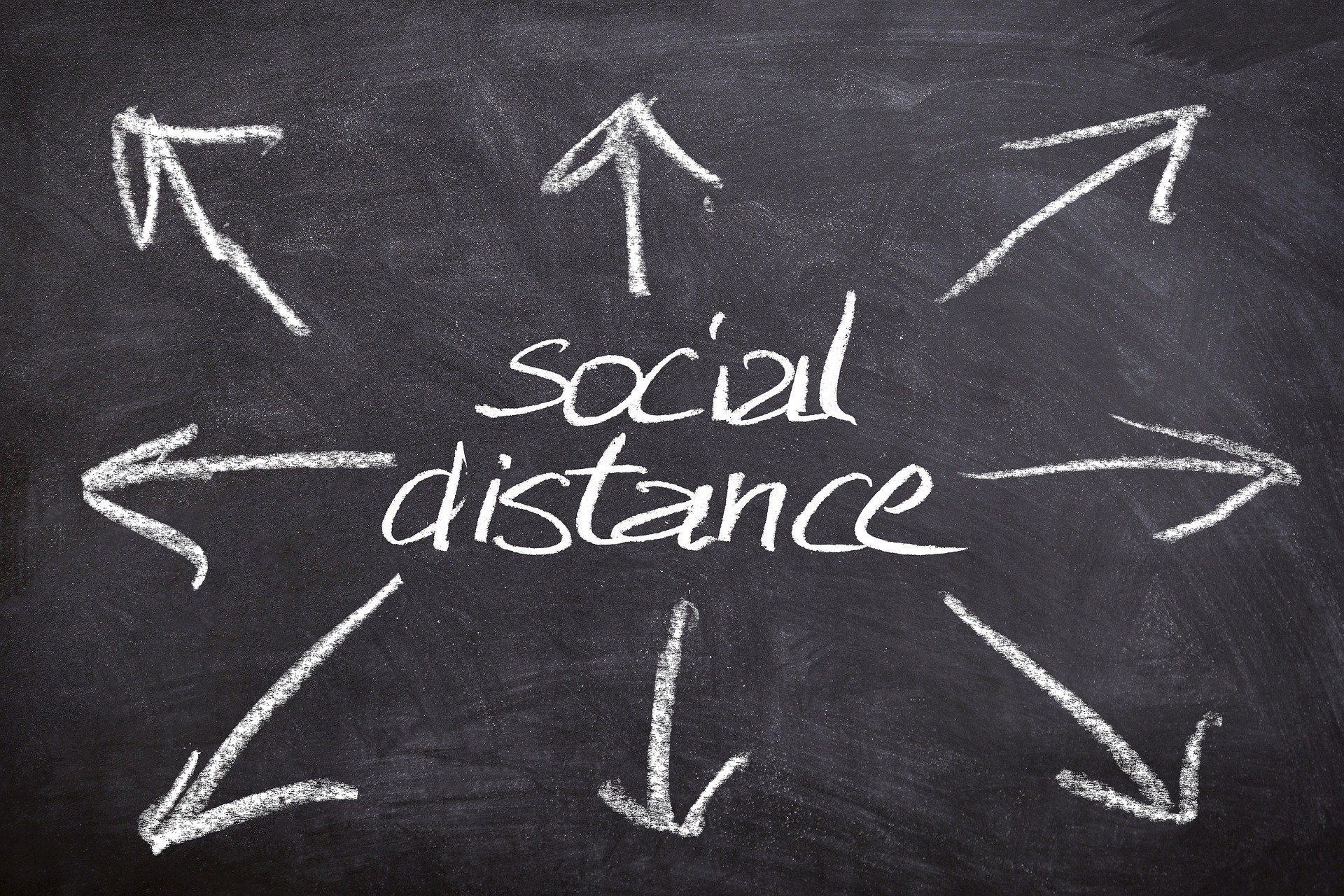By The European Council for Fatwa and Research
 The universal incident known as Coronavirus (COVID-19) has spread all over the world driving all counties to using all the health and material means they have to confront it.
The universal incident known as Coronavirus (COVID-19) has spread all over the world driving all counties to using all the health and material means they have to confront it.
There is no doubt confronting this pandemic requires adopting all material and virtual means one has. Religion has an auxiliary role in confronting COVID-19 and preventing it as follows.
One of the most important functions of religion is providing humans with spiritual power that guides them to good and virtual power enabling them to face hardship courageously and with strong determination.
To confront diseases, humans need strong physical and psychological immunity, as stated by doctors and specialists. The more tranquility and peace one has the more capable one is to resist diseases. Nevertheless, adopting preventive measures and seeking cure are essential.
A healthy system of life, i.e. food, exercise and prevention, is one of the means of the healthy immunity. The religion urges us to adopt such a system. Allah commands us to eat what is good and avoid what is bad. Allah says:
{Those who follow the messenger, the unlettered Prophet, whom they find mentioned in their own (scriptures),- in the law and the Gospel;- for he commands them what is just and forbids them what is evil; he allows them as lawful what is good (and pure) and prohibits them from what is bad (and impure); He releases them from their heavy burdens and from the yokes that are upon them. So it is those who believe in him, honor him, help him, and follow the light which is sent down with him,- it is they who will prosper.} (Al-A`raf 7:157)
Ibn Katheer narrates what is stated by other scholars commenting on what is good and what is bad:
“Everything permitted by Allah is good and useful for body and religion and everything forbidden by Allah is evil and bad for body and religion.”
The religion stresses cleanliness in the full sense of the term. The first chapter in Fiqh is on purity deemed the first approach to worship. It explains the rules of ghusl (washing), the legislation of wudu (ablution) that involves washing the apparent parts of the body, encouraging washing hands prior to and after eating, urging the application of siwak (a prophetic advice of cleaning teeth with a stick of a certain tree), the Sunnah practice of natural hygiene, and protecting food against pollution.
All these instructions are healthy practices aiming to make cleanliness a general practice by which one abides throughout all one’s life.
In a hadith reported by Muslim and narrated by Jabir (may Allah be pleased with him) Prophet Muhammad (peace be upon him), says: “Extinguish the lamps when you go to bed; close your doors; tie the mouths of your water skins, and cover the food and drinks.”
In the narration by Muslim “Cover the vessels and tie the water skin, for there is a night in a year when pestilence descends, and it does not pass an uncovered vessel or an untied water skin but some of that pestilence descending into it.”
The above-mentioned healthy measures, also urged by medical governorates, undoubtedly impact for a great deal on preventing diseases.
When a Muslim adheres to the instructions, s/he acts in a healthy way and at the same time, s/he performs an act of worship, a bonus that encourages these practices.
Another religious instruction relevant to the time of the epidemics is applying the preventive measures.
In an authentic hadith narrated by Usamah Ibn Zayd, Prophet Muhammad says: “If you get wind of the outbreak of plague in a land, do not enter it; and if it breaks out in a land in which you are, do not leave it.” Agreed upon.
This prophetic instruction teaches Muslims how to adopt a responsible attitude regarding their and others’ protection in the time of the plagues.
 In another hadith, Prophet Muhammad lays down a general rule for the Islamic rules. Prophet Muhammad says: “Let there be no harm nor reciprocal harm.” (Reported by Malik in Al-Muwatta)
In another hadith, Prophet Muhammad lays down a general rule for the Islamic rules. Prophet Muhammad says: “Let there be no harm nor reciprocal harm.” (Reported by Malik in Al-Muwatta)
In his book Al-Muntaqa, Imam Malik explains: “Al-Darar (harm) refers to that activity that achieves your interest yet harms other, whereas Dirar (reciprocal harm) refers to that activity that does not achieve your interest but inflects harm on others. This means that Darar refers to the activity that one embarks on aiming to achieve his interest but it involves harming others, whereas Dirar refers to the activity one embarks on to cause harm to others and Allah knows the best.”
As part of the role performed by religion confronting COVID-19, it urges the believers to abide by the health instructions issued by official bodies in order to protect themselves and others.
This concept, known as social responsibility, is preached and well established by religion. Prophet Muhammad stresses it in the hadith of the ship in which he states: “The likeness of the man who observes the limits prescribed by Allah and that of the man who transgresses them is like the people who get on board a ship after casting lots. Some of them are in its lower deck and some of them in its upper (deck). Those who are in its lower (deck), when they require water, go to the occupants of the upper deck, and say to them: ‘If we make a hole in the bottom of the ship, we shall not harm you.’ If they (the occupants of the upper deck) leave them to carry out their design they all will be drowned. But if they do not let them go ahead (with their plan), all of them will remain safe”. (Al-Bukhari)
The religion urges everyone to feel their responsibility towards averting this pandemic. Each one should apply the best of her/his skills. Doctors and nurses should fulfill their duties and treat the patients. Researchers should save no efforts to find out cures and vaccinations. Everyone should help people with special needs and the elderly people. Well-off people should donate to help with scientific researches, treatment and provision for those in need. Everyone should remember that working hard for delivering of people’s need is one of the best deeds drawing one neither to Allah.
In a hadith, when he was asked about the most beloved people by Allah, Prophet Muhammad said: “The dearest people to Allah are the most helpful with people.” This hadith is ranked as hasan (good) and is narrated by Ibn Abi Al-Dunia, Al Tawani and others.
Tests and adversities befalling people are to remind them of Allah and should drive them to returning to Allah, believing in Him and praying to him in submission for the removal of their suffering. Allah says: {When the suffering reached them from us, why then did they not learn humility? On the contrary their hearts became hardened, and Satan made their (sinful) acts seem alluring to them.} (Al-An`am 6:43)
Source: https://www.e-cfr.org/
[opic_orginalurl]


